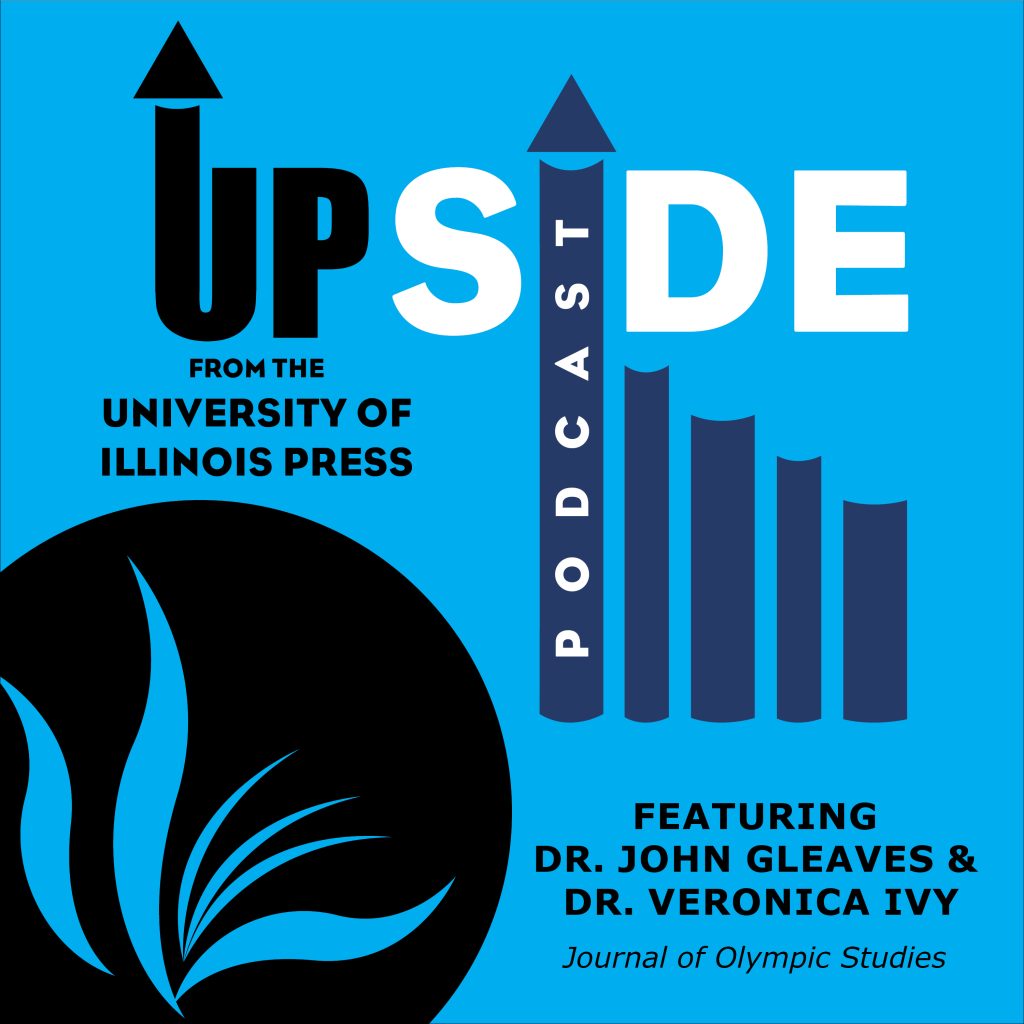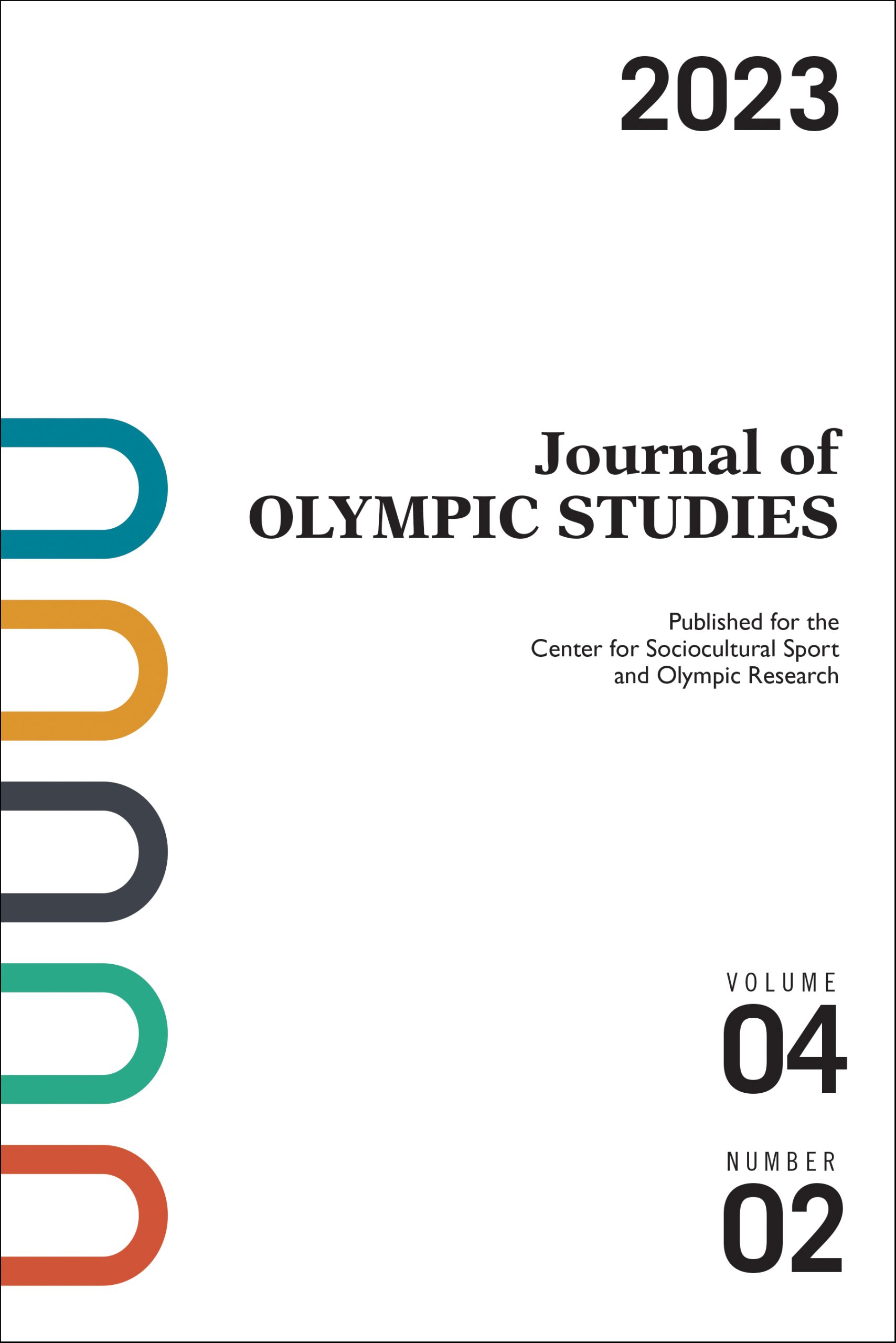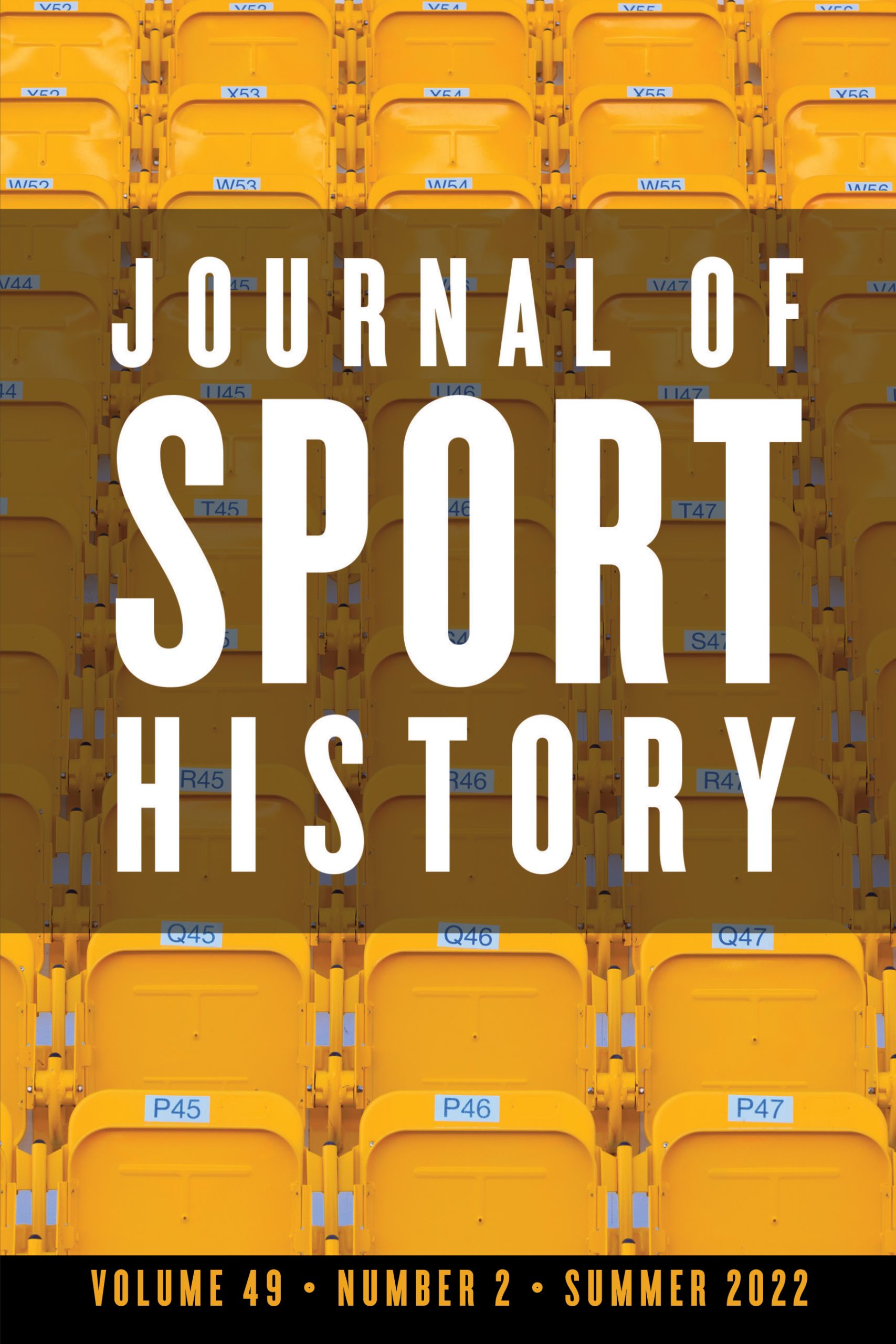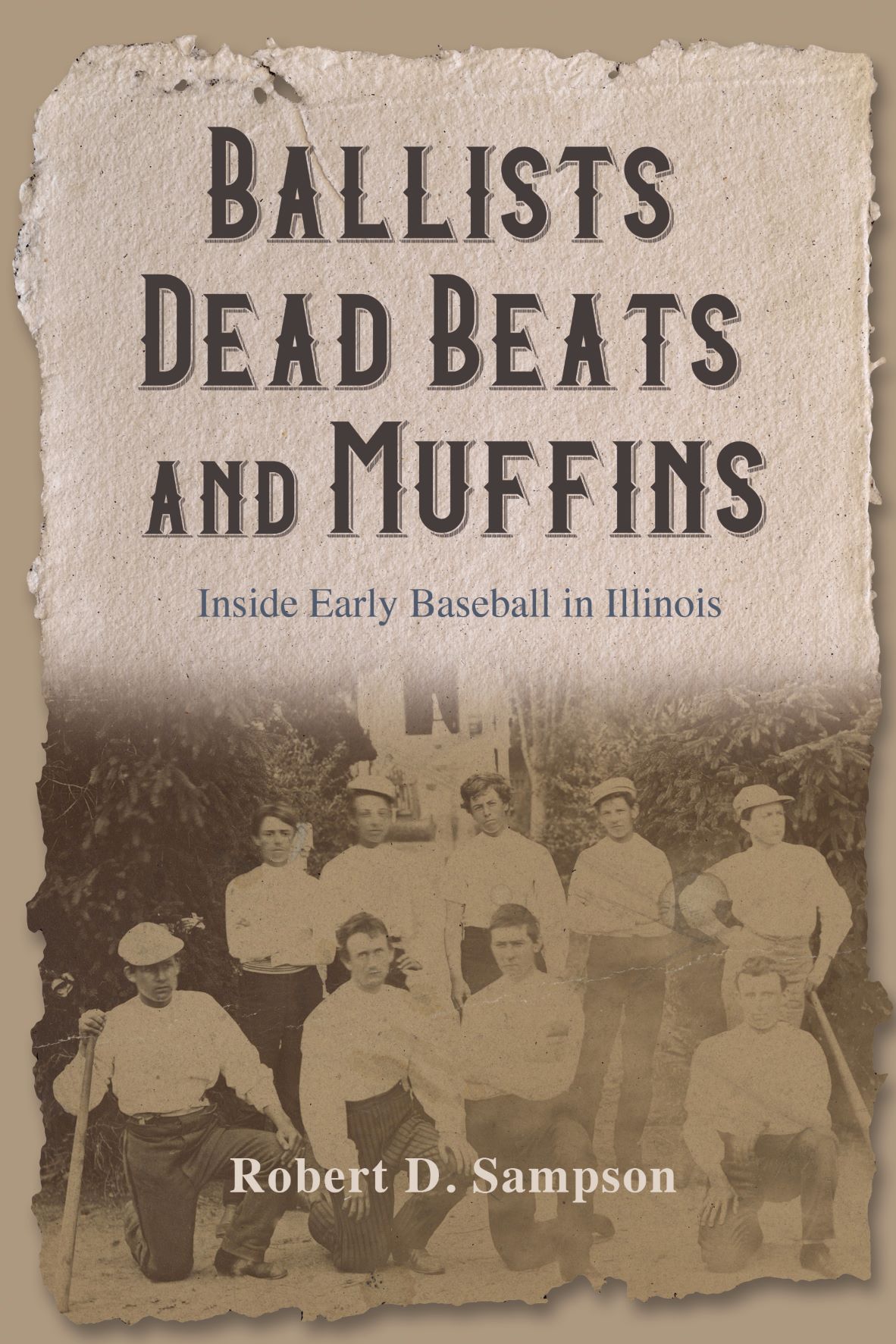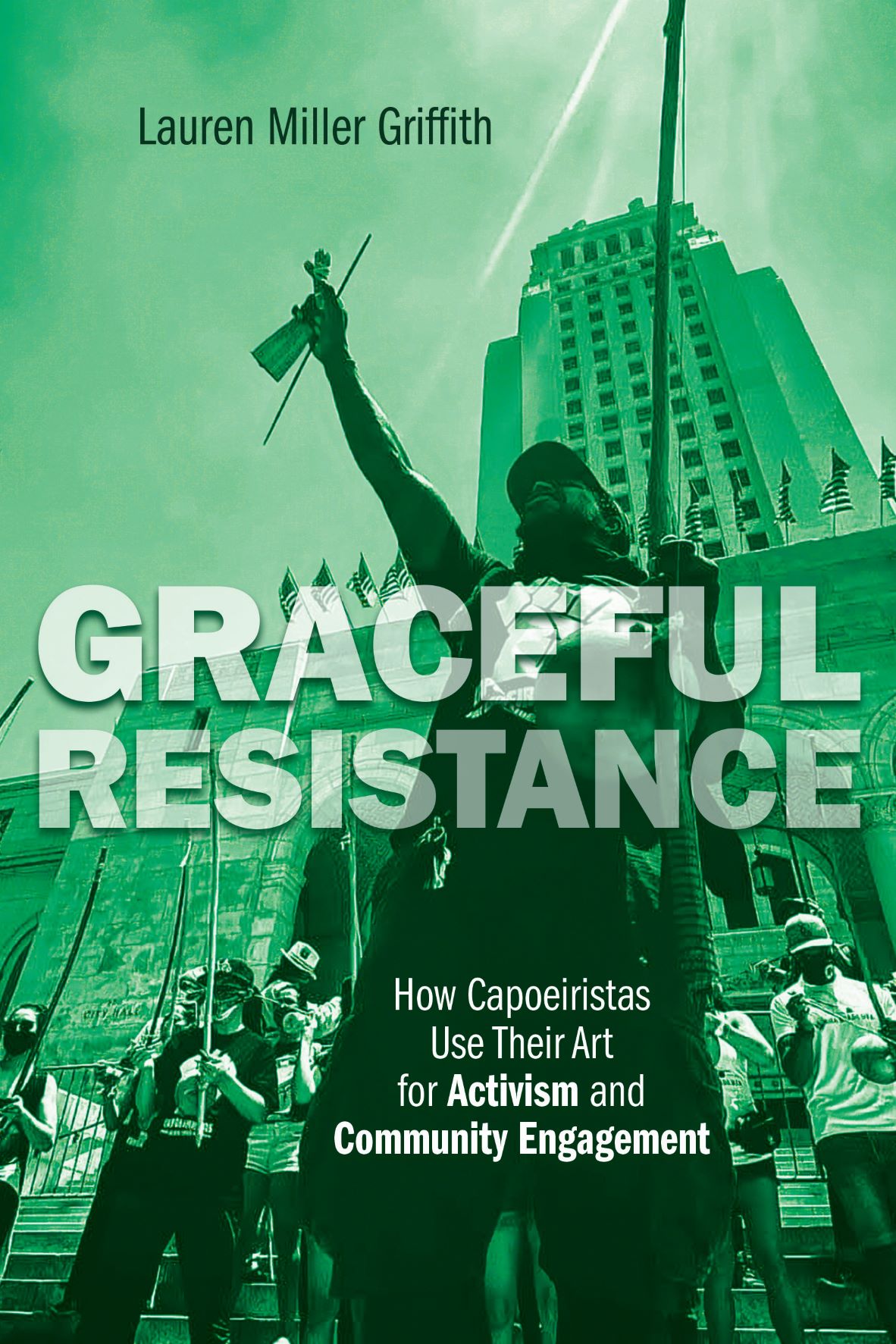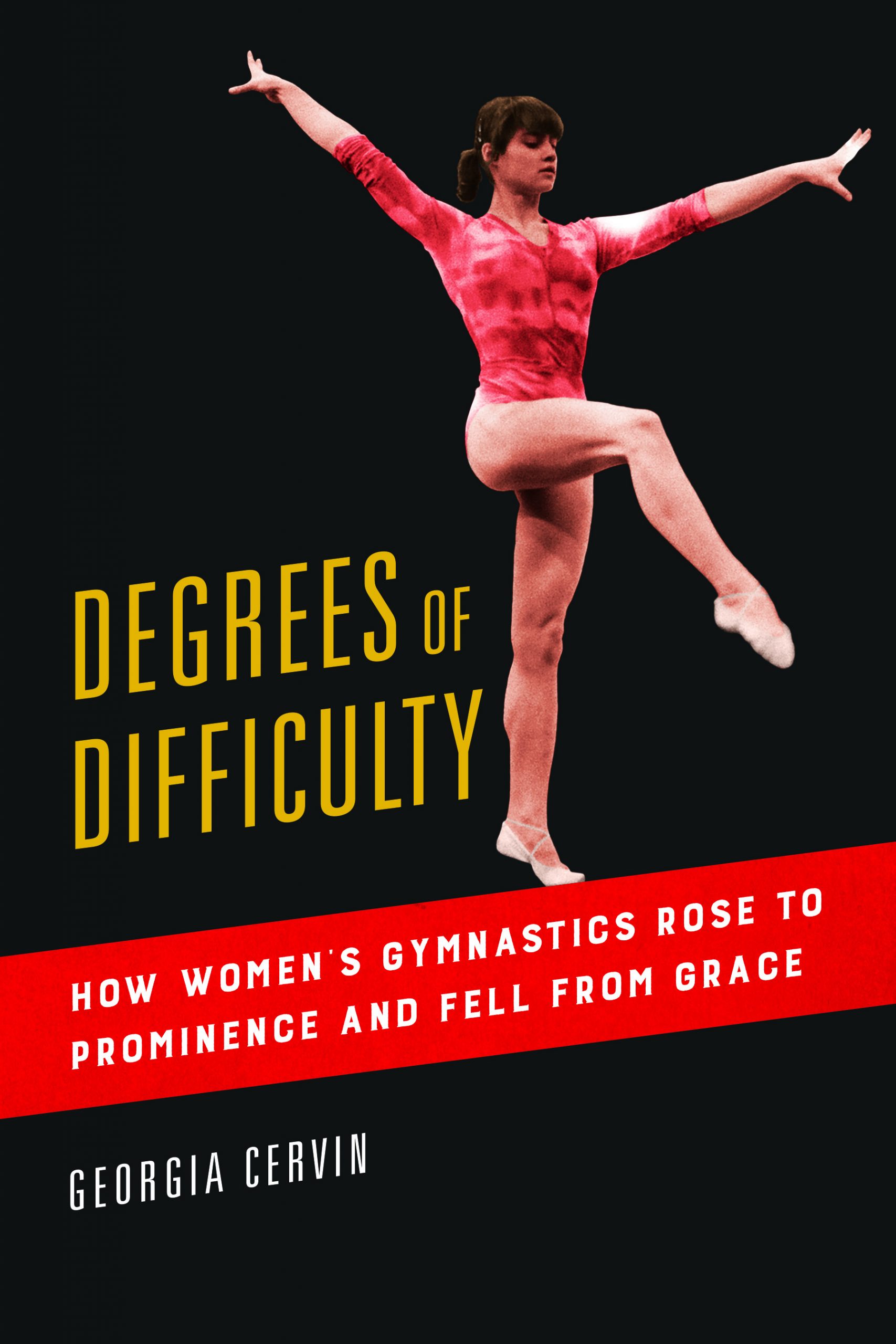In Volume 4, Number 2, of Journal of Olympic Studies, there is a forum on transgender athletes and the Olympic Games. Visit the Scholarly Publishing Collective to view the issue, listen to The UPside podcast for Part One or Part Two, or read the transcript of Part One below, or Part Two, also on our blog.
Michelle Woods (MW): Welcome to the University of Illinois Press podcast, The UPside. I’m Michelle Woods, Journals Marketing and Communications Manager of the Press, and this is part one of our podcast on a forum from the Journal of Olympic Studies Volume 4, Number 2, on transgender athletes and the Olympic Games. Joining me as guest co-host today is Dr. John Gleaves, associate editor of the Journal of Olympic Studies, and the author of the introduction to the forum.
Thanks for being here, John.
John Gleaves (JG): My pleasure, Michelle.
MW: I want to start by giving a bit of background on the Journal, followed by a brief introduction to the Olympic policies that drove the creation of this forum.
The Journal of Olympic Studies is an international peer-reviewed journal publishing on the Olympic and Paralympic Movements from scholars in fields including history, philosophy, management, communication, classics, literature, anthropology, cultural studies, economics, marketing, and law. You can learn more about the journal—including where to find the latest issue online, how to subscribe to, and how to submit your work to be considered for a future issue—on our website at go.illinois.edu/JOS or at olympicstudies.org.
Now I’ll pass the mic over to John to explain this forum and what brought it about.
JG: The editorial board for the Journal of Olympic studies always keeps up on current events coming out from the Olympic movement, and the framework had been something we’d seen and heard about as it was long developed. But when we finally saw the finished product, it was a bit surprising, as it was a significant departure from the previous documents that the IOC had put out regarding transgender athletes participating in sport.
It also seemed to the editorial board that this was something that had the potential to go in many different ways. It opened up the door for sporting federations to begin making their own choices and it seemed as though it wasn’t clear what was going to happen. It was also occurring at a time in which there was significant focus on transgender athletes in sports.
It was our privilege to reach out to a number of experts around the world, and what we simply asked them for was their reaction, as academics, to this new IOC framework, how they thought it was going to affect sport and athlete inclusion. We’re absolutely thrilled with what these authors have produced. This interview is a great opportunity for us now to ask them some follow-up questions about their insights into the IOC’s new framework.
MW: Thank you, John. Part Two of this discussion, featuring Dr. Ask Vest Christiansen talking about the article “The Negligence of Biological Reality,” will also be available on SoundCloud. Without further delay, let me introduce this episode’s special guest, Dr. Veronica Ivy, author of the article entitled, “Trans Women Are Women, and Sport Is a Human Right.”
Dr. Ivy is an academic with a PhD in philosophy from the University of Waterloo, which has led to many publications, inclusion in documentaries and news coverage, and also the author of a book. She’s a two-time masters track cycling world champion, an athlete rights and transgender rights activist.
Welcome, Veronica. We’re so glad to have you joining us. Would you like to tell us a bit about your background?
Veronica Ivy (VI): Oh jeez, where to start? I was a professor at the College of Charleston, in Charleston, South Carolina, and when I moved down there in 2014, I was primarily a badminton athlete and a lot of American cities don’t have competitive Badminton and I needed a new sport. I found myself doing spin classes and really enjoying riding a bike. On a whim, I used a tax refund, bought a road bike, started racing, started doing well, and fell in love with it. Even though in my first race someone caused me to crash, I was there the very next week, right back in it. Although I had been competing in sport like badminton throughout and after my transition, this issue of “is it fair for trans women to compete in women’s sport” wasn’t really in the background. It certainly wasn’t in the foreground for me.
As an ethics professor, someone who thinks about these issues, I was offered the chance to teach a course on sports ethics. I thought, hey this question of, “what is fairness in sport” is a shockingly under theorized question. A lot of people haven’t really deeply thought about what fairness is in sport. I took that course as an opportunity to ask myself the question, “is it fair for trans people to compete in sport?” I didn’t come to this issue with a preconceived answer. I went into the literature, and I thought deeply about the ethics frameworks, and then I came to the conclusion that oh, it’s obviously fair.
A lot of people think that this debate about including trans women in women’s sport is complicated. And I think that it’s not. I think it’s really, really simple. The entire debate comes down to “Are trans women real women? Are trans female people really female?” If you think yes, debate’s over: inclusion. You cannot justify exclusion if you think trans women are really women or are really female. And if you think that trans women aren’t real women or aren’t really female: one, you’re just wrong, legally and socially and ethically, you’re just wrong, and nothing I could possibly say will change your mind. That belief that trans women are not real women and are not really female is not sensitive to evidence. It’s an ideological position. The people who hold that view are not ones that can be persuaded by evidence or argument.
So again, if you think that trans women are really women, then of course, you include us. And if you think we aren’t, you’re just wrong, and there’s nothing I can say.
That launched this career of the intersection between my being a trans athlete rising through the professional ranks of cycling and being an expert and a professor. It was this really interesting intermingling of being an academic and athlete and an activist.
JG: Thanks, Veronica. Your approach to this subject really helps explain how you’ve developed maybe the idea that I think you’ve become most famous for, which is this idea of “sport is a human right.” Perhaps could you explain a little bit about what you see behind the idea of sport as a human right, and how it relates to discussion around the inclusion of transgender athletes?
VI: When I first looked into, “what is fairness and sport and how should we think about the inclusion or exclusion of a group of people,” the natural question you think about discrimination. Discrimination technically is a neutral term; it’s a way that we separate out things and so, saying that someone is a man and not a woman is a form of discrimination. But that doesn’t mean it’s unfair discrimination. So, the question is like, what constitutes fair discrimination versus unfair discrimination?
A natural place to look is the International Olympic Committee, and how they found the modern Olympic movement, because elite sport looks to the Olympics as a leader, as a trendsetter—not just for policy, but for ideals. The ideals of the Olympic movement are not strictly to have the most elite competition in a given year. The Olympics is not the highest level of competition, because countries are limited by how many athletes are allowed to send, which is not so much the case at a world championship, for example.
The ideals of inclusion and mutual understanding and respect are foregrounded for the Olympic movement. This is why, for example, for the past few Olympic cycles, the Olympics has had an Olympic team where they help support athletes from war-torn countries where there’s civil war and things like that, where their country can’t support them or send them to Olympics. They’ve had an Olympic team. They specifically try to invite athletes from underrepresented countries. I look to the Olympic movement and the IOC charter, and in the IOC charter, right at the beginning, after a preamble, are 7 fundamental principles of Olympism and the fourth principle says, first sentence, sport is a human right.
So, like, where did I get this idea that sport is human right from? It’s like, well, the Olympics. It’s really a founding principle of the modern Olympic movement.
JG: And so how does that relate to your research and activism around transgender athletes? How have you taken this idea of sport as a human right to be something that is a way of explaining why it is ethical for trans athletes to be competing?
VI: That’s a big question so I’ll try to answer the easier part. If we’re in this sport as a human right framework, then we get to talk about international human rights frameworks, both the law and the ethics, and there are principles that guide us in when it’s unfair to deny someone a human right. The flip side of that is when it is fair to deny someone a human right.
So, for example, freedom of movement is a human right. However, if you go on a mass murdering spree, we think that it’s justified in denying you that human right of freedom and locking you up in a prison, right? The benefits to society vastly outweigh the cost to you for removing that right. When we talk about discrimination in human rights, both in law and ethics, there are 3 principles to check whether it’s fair to deny human rights. First, the policy in question has to be in service of a worthy social goal. So, in this murder case the worthy social goal is public safety. In sport, our policies about trans athletes are about fairness. That’s a very low bar to clear. And even these policies, unfairly excluding trans women pass this very basic test of being in service of a worthy social goal of fairness and competition.
The second one is where they fall on their face. The policy has to be necessary and effective at promoting that worthy social goal. So, locking up a mass murderer is pretty necessary and very effective at preventing that person from doing more social harm. So, you can say that we cannot promote public safety with this mass murderer on the loose without locking them up, without removing that human right of freedom of movement. It’s also very effective at stopping future murders in the public. This question of excluding trans athletes: you have to say that excluding trans athletes is necessary and effective for promoting fairness in sport, and we’ll get into later why they cannot possibly pass that test. That stops things in their tracks.
The final test is that the harm caused to the discriminated against group must be proportional to the social benefit of removing that right. In the mass murderer case, removing the right to freedom, harms the mass murderer, but the benefit to society is so huge compared to the harm to that individual that we think the harm is justified. There is a slippery slope here, though, because it can be very easy to say, well, trans people are a minority of the population. We’re maybe half a percent of the global population while cis women are roughly 50, so that’s a hundred times more. Well, who cares if some harm is caused to the few trans women athletes if it benefits cis women to not compete against them. That’s not how we should think about proportionality and social benefit. Generally speaking, the more marginalized or socially oppressed a group is, the less we should be thinking about social benefit to harming them.
JG: You’ve taken a human rights approach. But many of the people who would disagree with you tend to focus on biological advantages. Perhaps you could just briefly summarize why you don’t think the biological advantages argument is really an effective way to answer this debate.
VI: I think part of this is a mis-framing of the competing approaches. When people say things like the “sport is a human right” approach ignores the science, biological reality, or ignores advantages—that is simply false.
You cannot do human rights analyses, or whether a policy is necessary and effective at promoting social good, without doing the things like competitive advantages, biological reality, stuff like that. They’re not competing approaches. The sport is a human right approach strongly considers the competitive advantages approach. You have to take that seriously in order to properly do the sport as a human right approach. The problem is the people who only want to think about biological advantages are ignoring all the human rights aspects. That’s doing it wrong.
You have people like the chief medical officer of the IOC, signing on to an open letter criticizing the framework for “ignoring the science.” But we didn’t. I went there with pages of scientific data that I handed him in the room during the consultation process. So, the idea that fairness versus inclusion are competing approaches is completely wrong.
“Sport is a human right” is that fairness requires inclusion as a default. The people arguing in favor of excluding trans women have the burden of proof, whereas they’re putting it the other way around. They think we have to prove that there is not an advantage. But that’s proving a negative, which is logically impossible to do. They can always say, “Well, we need more study, more study, more study.” No, the default is inclusion. You have to prove that excluding trans women is necessary for fairness, and they cannot do that based on looking at the competitive advantages.
Let’s look at the competitive advantages question. If you take all women (cis, trans, intersex) in a Venn diagram approach—so, the whole circle of women, everyone we call women (and trans women are women, we’re just moving forward with that)—you can draw arbitrary circles around different groups of women and then compare them with respect to competitive advantages. One thing that I’m arguing is that drawing the circle around cis versus trans is an arbitrary distinction, because that relies on talking about bodies. If you say trans women have an advantage over cis women, one, I’m going to contest that, but even granting it for the sake of argument, well, does a 5’2″ trans woman have an advantage over 6’4″ cis woman? Like, what does that even mean? We have to talk about types of bodies and drawing a circle around, for example, Dutch women, who are the tallest women by nationality in the world, versus, I don’t know, Indonesian women, who are pretty short—Dutch women are on average, 8 and a half inches taller than Indonesian women, but we let Dutch national teams compete against Indonesian national teams, with an 8 and a half inch height difference, and we call that fair. And I think we should. It’s fair, it’s fine, but the difference between trans women and cis women is not 8 and a half inches of height. We’re not William Wallace giants in mythical lore. We have to talk about actual bodies.
These policies that want to exclude trans athletes have to say things like, well trans women above a certain size, or above a certain power ratio, or above a certain lean body mass, is unfair. But the problem is you have to say that the cis women who have those features is also unfair, and they don’t want to do that. Whatever biological feature you want to pick on, I can show you cis women with more of it. This “competitive advantages” question is itself ill-conceived.
JG: Stepping back a second, in your article, you brought up a really fascinating point that these conversations tend to focus on transgender and intersex women athletes and largely ignore transgender men or other non-binary athletes. I’m curious, why do you think this is? And how do you think this affects people’s perceptions of trans inclusion in sport?
VI: The short answer is misogyny.
The longer answer is transmasculine people, trans men, non-binary people of a transmasculine persuasion, are erased, disappeared from the social consciousness. So, this is very common response I get to showing that trans women have not taken over elite sport is “Well, where are all the trans men? If it’s so fair for trans women, where are all the trans men?” I’m like, well, the most commercially successful trans athlete in the world is a trans man. His name is Chris Mosier. He is a multi-time Team USA duathlete and was on his way to trying to make the Olympics for speed walking before an injury. He had a Nike ad campaign during prime-time 2016 Rio Olympics. So, where all the trans men? They’re on prime-time ad campaigns during the Olympics and people are asking “where are they?”
If you can be that prominent and people not even know you exist, that says something deeper is happening. And when people think about which trans women have been successful, they tend to focus on like really goofy things like, I don’t know, a couple of Black trans women from Connecticut running in high school track and field. Not winning national championships, but high school track and field. That’s the level of the success we’re talking about for trans women and people are losing their minds. And that’s the type of example that’s quick to come to mind for people. But Team USA Chris Mosier doesn’t exist in their minds. Why are they hyper focused on any level of success for trans women and completely forget, or can’t even see, the higher levels of success for trans men? It’s misogyny because they think that trans women aren’t real women and so it’s unfair. We must protect the cis women—versus trans men are really just women and who cares if we let them compete against the real men? So, it’s a misogyny on both sides. It’s a misogyny in thinking that cis women are weak and fragile and need to be protected and trans men are weak and fragile, and “Who cares if they compete against the men? Good luck to you.”
I will note one other successful trans male athlete is Patricio Manuel. He’s a professional boxer and he went years with no one being willing to fight him. Not because they thought he had an unfair advantage, but—and this is the truth—they thought he was a girl, and the athletes couldn’t take possibly losing to a “girl.” And so that’s misogyny. One reason trans male athletes aren’t more successful is they are denied the opportunities to prove themselves. And by the way, he’s finally getting fights, and he’s winning and it’s hilarious. It’s awesome. He’s amazing.
JG: I want to ask a personal question. Given your experience and your unique perspective as an academic expert and as an athlete, how have you seen stances on transgender inclusion, whether it’s from organizers and organizations all the way up to the IOC to just the general public that you meet every day in the grocery store, how have you seen that evolve over your career? And what affects have that had on you as an athlete and as a scholar?
VI: Those are two really separate questions. I’ll take the first one: the IOC has had frameworks for the past 20 years and they had their first policy recommendation in 2003. They required trans women to have genital surgery and a 2-year waiting period, even though genitals don’t play sports, there’s no scientific reason for this. That was their policy recommendation from 2003 and a lot of the International Sports Federations adopted that as their trans policy, partly because they were under the mistaken impression it was an Olympic policy.
This is something we were disabused of in 2023 with the new Olympic framework, because the new framework made it clear the Olympics does not have inclusion policies, period. This is a fundamental misunderstanding that is super common, and even I had it, where the Olympics is not actually an event. The Olympics hosts the International Sports Federations under the International Sports Federations’ rules. So, at the Tokyo Olympics, for example, there were transgender bans. World Rugby is a prominent one. They were the sort of the first sport to prominently ban trans women based on no evidence whatsoever. And the Olympics is fine with that because they do not want to tell International Sports Federations what to do.
This first policy in 2003, International Sports Federations mistook it for an Olympic policy, and they figured, oh well, we have to adopt it. So, they did.
In 2015, that policy recommendation was updated by the IOC to remove the surgery requirement. (Good for them.) That’s where the 12-month testosterone suppression policy came from, even though there’s no evidence requiring that either. But at least that was a clear move towards more inclusivity for trans athletes.
Then the 2023 framework honestly is a much bigger step towards inclusion. However, it has had this horrible knock-on effect of letting International Sports Federations know that they can make up whatever rules they want, and the Olympics will not say anything about it. We’ve seen sport after sport start banning trans women. Even my own sport of cycling has banned trans women now, and I’m suing them in in UK Court over this. While the framework is very good, and I had a hand in the consultations for it and it seems like they listened to me, the problem is that it made clear that it’s not a policy document. It’s a recommendation document. Unfortunately, all these International Federations banning trans women are violating this framework left and right. They’re assuming, for example, advantage for trans women, even though that’s explicitly in the framework not to do, that they should not assume advantage. And these Sports Federations are saying, “Look, we’re following the policy,” or “We’re following the framework,” and they’re not. But they think they are. They’re using this framework as cover, even though they’re just violating it flagrantly.
JG: You know, I cannot think of a more high-profile scholar, athlete, activist. You’ve been on the Daily Show. You’ve been on Fox News. I’ve read your work in USA Today. I’ve heard you on radio. I’ve heard you on many podcasts. What has it been like to not only be a competing athlete, but also a person trying to explain a message to the larger public?
VI: Yeah, we had this conversation in person in March, I think, where I’m really hesitant to say things like, “I think I’m the world leading expert on this issue.” And your response was, “Oh, it’s obvious.” Because a lot of people know quite a lot about a small area, for example, like, physiology. But there isn’t really anyone else who sits at the intersection of elite athlete experience, but also the academic background of like statistics and science that I have. I started out in kinesiology. I’ve taken high level physiology, courses and stuff like that. The ethics, the law, the public policy, the sociology of these questions. There isn’t someone who has all of those tools to bring to this question, and who is also a trans person, by the way, who has those personal experiences. Being the person that I am, and especially winning the 2 world championships has given me opportunities that other people don’t have. I’ve been able to be at the table of many of these conversations. That doesn’t mean they ever listen to me: World Triathlon banned trans women with just a bonkers policy and didn’t listen to a single thing I said. But at least I have a shot at convincing various people. And you mentioned the Daily Show, that was a very positive experience because that show has such a wide reach. The show doesn’t quite pick this up, but I got two standing ovations during my segment, so that was really neat. And I’ve gone into the lion’s den of Fox News in their headquarters in New York, for example, like I’ve been willing to go toe to toe with whoever they put up against me. It’s given me a chance to change minds.
However, I am also the face of the hate campaign against trans women. I remember the first news outlet to report on my 2018 World Championship was the Daily Caller and then Breitbart and all the alt-right was the first to pick it up. And then it just exploded. I get death threats all the time. My social media posts are flooded with hate comments. When the UCI, the International Cycling Union banned trans women, and I posted something about that, if you go look at the comment sections on my Instagram, it is hundreds and hundreds of hate comments. On my other posts I usually just delete them all, but I purposely left them for those two posts to let people see what it’s like, just a snippet of what it’s like.
Personally, it’s been horrible. It’s given me severe PTSD, which is a lot of fun, and that has had an untold negative effect on my sport performance. So, through 2018, I was progressing towards making Team Canada for the 2020 Olympics and was making perfect progress, right on track. Then the World Championship happens, and the blowback came, and the PTSD was just inflamed brutally. My performance the very next year was much worse—it was really hard, in fact, to compete at the elite level, not just the Masters Age group level, but the summer elite championships where I’m racing Olympians and trying to get international ranking points was really horrible and discouraging. It’s had an untold negative personal effect. And now I’m banned from the sport that I love. It’s hard for me to be involved in promoting the sport with races at our local velodrome that I’ve been developing. It’s hard for me to celebrate my cis friends in their successes, because all it does is remind me that I don’t get to play. So, it’s been personally brutal.
JG: Wow. Thank you for sharing that. I guess I would like to ask one last question and you can take it whichever direction you want. But I don’t think that as academics or as sporting organizations, we’re anywhere close to the last word on this topic. What would you like people to keep front and center as they as they continue to try to figure out the next steps. What would be your message to everyone—students, scholars, organizers—as they try to figure out what this next policy should look like? Do you have any thoughts on that?
VI: I think I’ve already published and said the last word many times, and I’m frankly really sick of repeating myself because the policy answer is: just stop policing who counts as a real woman, and that includes intersex women, especially intersex women of color like Dutee Chand and Caster Semenya. And there’s so many others who are singled out for high natural testosterone, even though no evidence shows a link between natural testosterone and performance.
This policing about femininity, and who counts as a woman: just to stop it. Trans women are women, intersex women are women, stop having inclusion or exclusion policies. If you’re a woman, you compete with women. If you’re a man, you compete with men. It’s a super simple policy.
I was on the Board of Cycling, British Columbia, my Provincial Cycling Federation, and I wrote their trans policy. It basically says, “You get to compete however you identify, have fun.” And it’s so simple. I’ve given all of the arguments for why that’s justified, why that’s the right policy. It really comes down to “Are trans women, women?” If yes: inclusion.
I want people to stop and think and really sit with: when you think of a trans woman, do you think of them as a real woman? Or… I was watching a movie the other night and it’s just shocking how random transphobia is in movies. It was the first Hitman movie and the female co-lead asked the male lead, “Okay, tell me what this woman behind you is wearing,” and he’s like, “Well, that’s not that’s not really a woman.” If you think that way about trans women, that’s a you problem. And that’s the thing you need to work on. That’s not a thing I need to convince you of. If what’s stopping you from including trans women, is that you think they’re not real women, that’s the thing you have to work on.
If you think “Oh, there’s a competitive advantage,” what competitive advantage? There are no studies whatsoever on elite trans women in any sport, let alone being sport-specific. The UCI, their chief medical officer, Xavier Bigard, in his white paper supporting their ban of trans women said, “Well, we don’t have any evidence that trans women have an advantage.” He admits it out in the open. “What we’re lacking is proof that there is not an advantage. And that’s what we need.” And remember, that’s the proving the negative thing. They’re taking the default of exclusion. That’s not how this works.
So, what’s the last word? That’s the last word. The reason why I’m confident that when studies of elite trans women happen, no advantage—even if there is one and I don’t believe there will be—even if there is an advantage, you also have to compare like with like. You can’t compare a 6′ trans woman with a 5’6″ cis woman. You have to compare 6′ to 6′, lean body mass versus lean body mass. You need like to like for your comparison. So, one, you will never have enough elite trans women in any given sport to be statistically significant. There’s not enough of us, so that data will never happen. If the Sport Federation says, “We need that data before we include you,” well, it’s never going to happen.
But remember the huge range of body types and abilities and performance advantages within cis women themselves. We let 5’3″ 100-pound cis women play rugby against 300-pound 6′ cis women, and we call that fair and safe. But World Rugby banned trans women over something like 5’7″ 160-pounds. So, why is the 5’7″, 160-pound trans women unfair, but a 300-pound 6′ cis woman is fair? That is incoherent. It is nonsense. If we’re willing to have this huge range within cis women, whatever tiny differences there might be, relatively speaking, between cis and trans women, it’s just not going to be enough to justify exclusion. It’s not going to be enough to justify removing a human right. And sport is a human right.
MW: Before we wrap up, we wanted to express our gratitude to you, Veronica, for sharing your insights on transgender inclusion in sports. Your perspective and incisive analysis have provided our listeners and the readers of the Journal of Olympic Studies with a more complete picture of the issues facing the sports world today. We are truly thankful for your contribution to today’s episode.
VI: Happy to be here!
MW: Are there any final thoughts you’d like to share, John?
JG: This forum highlights what I think is academia at its greatest. It’s what we can do as scholars to synthesize science, to synthesize ethics, to synthesize personal experience—and to try to make meaning out of what is a very complicated debate.
I’m often disappointed when I read about the topic of trans athletes in the general press, at how uninformed the conversations are, about how they ignore elements of biology, or how they overlook elements of ethics. And what this forum has shown with both of our scholars is the need to have highly informed, nuanced, careful discussion, because often what we think about a topic if we just jump right in isn’t always correct, especially when we’re dealing with marginalized groups that have a history of stigma and discrimination.
Both Ask Vest Christiansen and Veronica Ivy have helped, I think, unpack this debate in a way that shows two scholars, highly informed, that are able to disagree, but also can disagree in a way that is productive, and is driving us forward towards an answer. I think, while all of our scholars have made very different points, as an editor for the Journal of Olympic Studies, it just shows to me the need for us to continue to pursue answers and to bring in the best scholars from around the world to help us understand these issues. Even if we think of them as Olympic questions, or even if we think of them as sport questions, they really are human questions, and they tell us a lot about where we are at as a human species, as a society, where our values are, where we’re going.
This forum really highlights everything that this journal is about, and these scholars have absolutely done themselves credit and shown what it’s like to research and disseminate their findings to a global audience in a way that is incredibly difficult to be done. It is just such an honor and a privilege to have been part of this forum, and to have been able to work with Ask and Veronica in in their both of their expert capacities. I’m looking forward to seeing where this forum goes as it gets shared with the wider public. But I have a strong suspicion this is going to be a highly accessed, highly shared, and highly discussed forum.
MW: Thank you, John, for that conclusion to this part of our podcast series.
Thank you, again to our guests from both parts of this podcast series, Veronica Ivy and Ask Vest Christiansen, to John Gleaves for co-hosting, and, of course, to you, our listeners for joining us in this conversation. This forum is available in Volume 4, Number 2, of the Journal of Olympic Studies, available in print and online now. To learn more about how to read the issue, subscribe to the Journal, or submit your work for consideration in a future issue, visit go.illinois.edu/JOS or olympicstudies.org.
The Journal of Olympic Studies is part of a robust lineup of sports-related scholarship at the University of Illinois Press. Recently on our podcast, we talked with Robert Sampson, author of Ballists, Dead Beats, and Muffins: Inside Baseball in Illinois and editor of the Journal of the Illinois State Historical Society. We also publish the Journal of Sport History, as well as several books that may be of interest, including: Graceful Resistance: How Capoeiristas Use Their Art for Activism and Community Engagement by Lauren Miller Griffith and Degrees of Difficulty: How Women’s Gymnastics Rose to Prominence and Fell from Grace by Georgia Cervin. To learn about all of these and more, visit us online at press.uillinois.edu.

